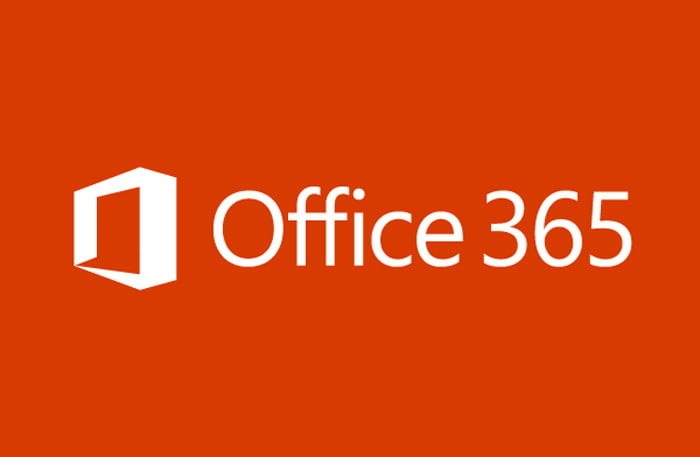If you’re thinking of using Microsoft 365 but aren’t sure if it will suit your small business or if you’re already signed up but think you might not be taking full advantage of your monthly fee, this blog is for you.
It’s a pretty straightforward and intuitive setup but with such a wide variety of tools and add-ons, sometimes people don't realise that there is just the tool they need, right there. You might be shocked to find out just how many tools there are available, even if you've been using the system for a while already.
But if you're not already using Microsoft 365, why would you? Maybe you have older, non-cloud versions of Office, or perhaps you're using Google's G-Suite instead. What would make Microsoft 365 a better option for your business?
It's flexible and scalable
Microsoft 365 has 4 different plans for businesses that range from £3.80 to £15.10 per user per month, depending on the size of your company and services you need. For the smaller price bracket - Microsoft 365 Business Basic - you get all your email and office apps as web and mobile versions, plus Exchange, OneDrive, SharePoint and Teams. At the top end of the range - Microsoft 365 Business Premium - you get desktop versions of all the apps with advanced threat protection and device management included. With the mid-point - Microsoft 365 Business Standard - you get a similar package with more basic security and management features. There is also an "app only" package which does not come with Microsoft Teams or a business email.
For most small businesses, we recommend Microsoft 365 Business Premium but we don’t think one plan fits all. Get in touch and we'll help you figure out which option is right for your business. The point is that everything is flexible, so you get what you need without paying for what you don't.
As you grow, you might want to scale your subscription - the Enterprise level packages include even more tools, enhanced security features, and data analytics. These might not be necessary for you now, but they'll definitely come in handy when your business gets bigger.
You can buy with a monthly commitment (which makes it easy to scale back if you need to), which bumps up the price a little, or pay for a full year up front. All packages also come with a month's free trial if you want to experiment with how many of the tools your business will actually use before committing.
It keeps your data safe
There's no one around who doesn't know how important data security is these days, with businesses being fined for poor security and breaches, and others losing millions through cyber security issues. So, how can a cloud platform offer enough security to be safe?
Well, as it happens, the big cloud providers offer security far over and above what any small business would be able to implement alone. Their business is the cloud, which means it's in their best interests to offer the best security possible - so they invest huge amounts in different types and measures.
Microsoft 365, for example, is a cloud platform complete with robust monitoring systems, encrypted data and advanced protection against cyber-attacks and phishing.
This means your data is safe and private at all times. Plus, Microsoft have made loads of effort to ensure that 365 is GDPR compliant, so you can rest assured that your software won't let you down.
Of course, you can contribute to keeping everything safe, too, so that you don't add risk as an end user. Implementing multi-factor authentication and making sure staff understand the essentials of cyber awareness will also help keep you secure.
It promotes remote working
Remote working has become a lot more common recently for obvious reasons, and many companies are planning to move forward with more flexible policies in this area. As well as allowing employees to avoid commutes and afterschool childcare costs, remote working allows companies to hire employees who might live in another city, country, or even continent.
Companies like Buffer are a prime example of how successful this type of business model can be. Using cloud services like Microsoft 365 allows this to work for your business as well as your employees. They can access all their data from anywhere around the world, as long as they have half decent internet access, so they won't be missing important documents or wishing they hadn't saved things on the server they can't access outside the office.
Not to mention the fact that Teams and SharePoint make collaboration incredibly simple, making it possible to engage and communicate no matter where everyone else is.
If completely flexible working isn’t in your plan, having the technology available at least means you give your employees the opportunity to work from home if they need to (we’re thinking ill kids, snow days, or unexpected car trouble).
If you're considering remote working but you're not yet sure it's a good idea, you may be interested in our free ebook about how to make remote working effective for your business.
It's familiar
The Office Suite - Word, Excel, PowerPoint - have been around a lot longer than the cloud, and it's likely that you've become pretty comfortable with them over the years. Don't underestimate the power of familiarity. It's amazing how much time you can lose when you need to learn a new system, and how frustrating it can be when you can't find functionality you've come to rely on. New G-Suite users are often irritated by the fact that Google Sheets doesn't have all the functionality of Microsoft Excel - if you're using spreadsheets a lot, you'll probably want to have the familiarity and effectiveness of a tried and tested system.
As well as being home to your familiar apps, Microsoft 365 improves things further with access to the latest version of each application. You don't have to worry about patches or upgrades - that's all taken care of and you'll always be up to date.
Updated October 2021




.png)
.png)